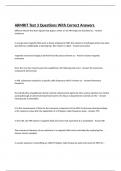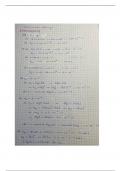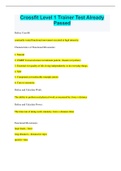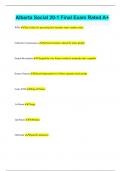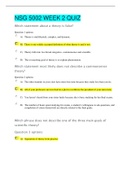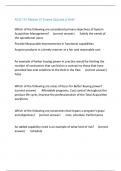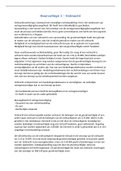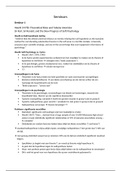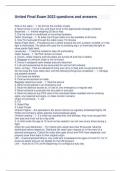Exam (elaborations)
ARMRIT Test 3 Questions With Correct Answers
- Module
- Institution
Different tissues that have signals that appear similar on an MR image are described as: - Answer isointense In a large main magnetic field such as those employed in MRI, the motion of a hydrogen proton has been described as wobbling like a spinning top. this motion is called: - Answer precessio...
[Show more]
